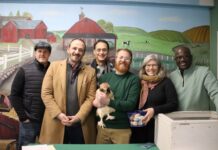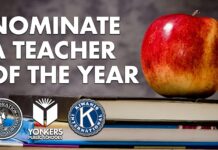
By: Dennis Richmond, Jr.
In the 1960s, the Black Panther Party (BPP) emerged as a force of revolution and hope for Black communities in America. Born in the heart of Oakland, California, the BPP was forged in the fire of systemic oppression, offering both protection and purpose to a people who had long been silenced. The Party, founded by Huey P. Newton and Bobby Seale, became a beacon of resistance, its armed patrols and community programs illustrating the power of Black self-determination. But as revolutionary as the Black Panther Party was in theory, its story remains as heartbreakingly poignant as it is inspiring.
Fred Hampton, the charismatic leader of the Illinois chapter of the BPP, captured the soul of the movement. In 1969, at just 21 years old, Hampton became a voice for the disillusioned, rallying Black youth to embrace their power and demand their rights. His words, now immortalized in history, still echo today: “We say, we want freedom, we want power to determine the destiny of our Black community.” Hampton’s belief in the power of unity and the necessity of revolution was not just a political stance—it was a call for survival. Tragically, his life was stolen from him in a brutal assassination by the FBI, a loss that marked one of the darkest chapters in American history.
Yet, even in death, Hampton’s words resonate deeply with the struggle of young Black men and women today. For Black youth in Yonkers, Mount Vernon, and across the nation, the fight for justice is far from over. The challenge today, as it was in Hampton’s time, is to recognize that the struggle for liberation is inherently tied to how we learn and teach. As Fred Hampton said, “You can kill a revolutionary, but you can’t kill a revolution.”
Stokely Carmichael, who later became Kwame Ture, called for a radical change in the way Black people viewed their relationship to power and authority. His call for “Black Power” was not simply about reclaiming Black pride, but about realizing that power does not come from the government or the status quo; it comes from the people. Carmichael’s words reverberate now more than ever: “This is the first time in history that the oppressed have an opportunity to take over their own destiny, their own power.” Young people in New York, in Brooklyn, Harlem, and the Bronx, are inheriting a legacy of revolutionary thought that demands they take control, not just of their communities but of their futures.
And then there’s Angela Davis, whose voice was an unyielding drumbeat of liberation. As a member of the Communist Party and an advocate for Black liberation, Davis understood that true revolution begins in the classroom. “Education is the practice of freedom,” she wrote, “the means by which we learn to recognize and develop our own voices.” Yet in our schools today, too many young Black minds are still shackled by curricula that teach submission and silence rather than liberation and justice.
The fight for justice today is about the same principles the Panthers lived and died for—self-defense, empowerment, and unity. But it also demands that we radically transform how we teach the next generation. In New York, educators must learn not just to teach for education, but to teach for liberation. This is how we honor the Panthers, and this is how we fight. As Fred Hampton said, “We have to love each other and support each other. We have to teach the people how to defend themselves.” The struggle continues. And for that, we owe it to the Panthers—and to ourselves—to keep fighting, teaching, and loving.
The Black Panther Party’s legacy is not just a history lesson. It’s a living, breathing movement that is still taking shape today. My father, Dennis Richmond, Sr., attended a BPP meeting when he lived in California. It is our duty as Black Americans—every single one of us—to make sure the legacy of the Black Panther Party never dies.
Dennis Richmond Jr. lives in Yonkers and is on Twitter @NewYorkStakz. He is a journalist focused on Black, Latinx, and LGBTQ+ Communities.





